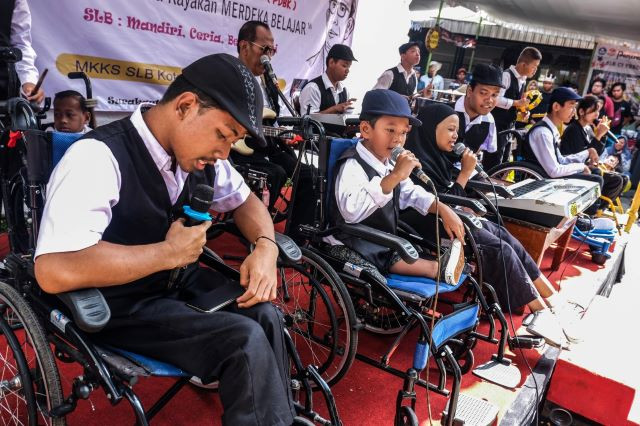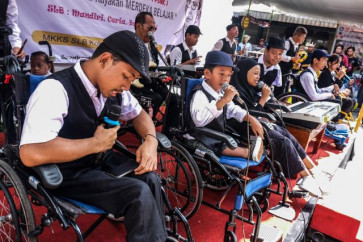Popular Reads
Top Results
Can't find what you're looking for?
View all search resultsPopular Reads
Top Results
Can't find what you're looking for?
View all search resultsCollective action for an equal world
Recognizing, respecting and implementing the rights of persons with disabilities at all levels is not only a matter of human rights but is also fundamental to achieving sustainable development and national prosperity.
Change text size
Gift Premium Articles
to Anyone
O
n Dec. 3, the world celebrates the International Day of Persons with Disabilities (IDPD). This year's theme, “United in action to rescue and achieve the [Sustainable Development Goals (SDGs)] for, with and by persons with disabilities” underscores the global commitment to inclusivity.
This commemoration represents a collective effort to foster equality for individuals with disabilities, ensuring the fulfillment of their needs, rights and well-being, particularly among children. This aligns with SDG 6, emphasizing access to adequate water and sanitation.
Persons with disabilities face challenges, exacerbated by extreme climate change resulting in drought, rising temperatures and prolonged dry seasons. According to data from the Meteorology, Climatology and Geophysics Agency (BMKG), Indonesia experienced an average temperature of 27 degrees Celsius in September 2023, marking the fourth-highest temperature since observations began in 1981.
In 2023, the BMKG identified four regions in East Nusa Tenggara (NTT) with heightened potential for drought. These areas were subdistricts in Kupang regency, Kupang city, Malaka regency and sikka Regency.
Correspondingly, data from the Regional Disaster Management Agency (BPBD) of West Nusa Tenggara Province (NTB) reveals three areas are at risk of potential drought, including several subdistricts in Dompu regency, Bima regency, Bima city, East Lombok regency, West Lombok and Sumbawa.
Several factors contribute to water scarcity in NTT and NTB, including limited water sources, lack of access to water at the district or city level, illegal logging, land burning and others. This drought exacerbates the challenges faced by marginalized groups, notably children, women, the elderly and individuals with disabilities, impacting their overall well-being and survival.
Persons with disabilities encounter various challenges, including physical, institutional and societal barriers in accessing water, sanitation and hygiene (WASH) facilities, both at the household and community levels. These obstacles elevate the susceptibility of these vulnerable groups to infection, injury and compromised safety.



















